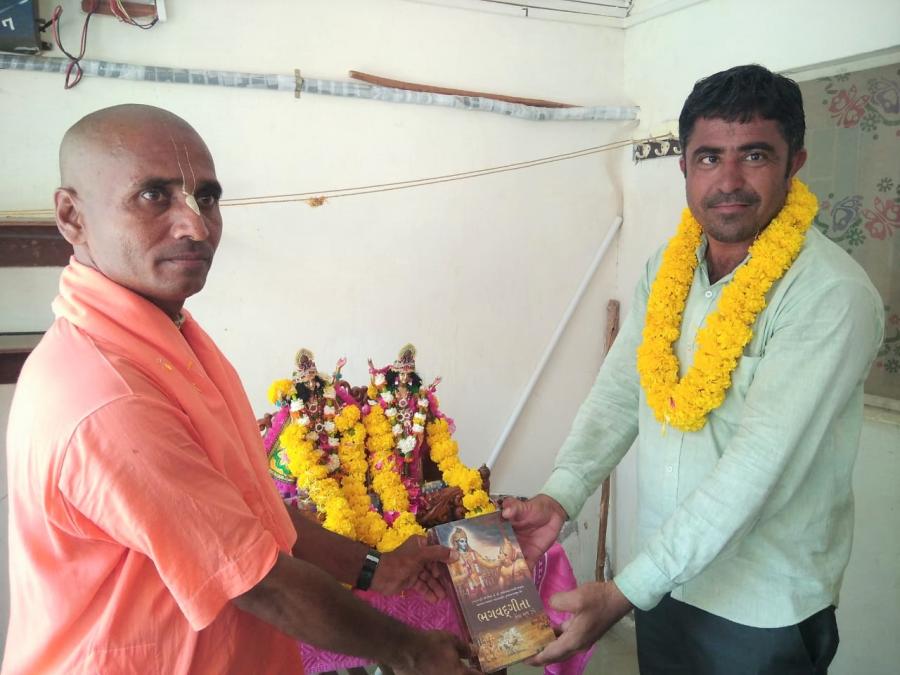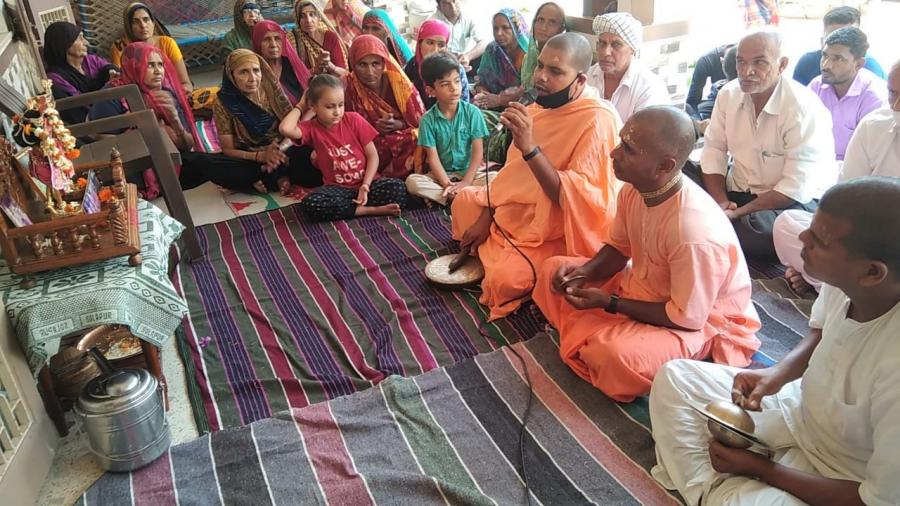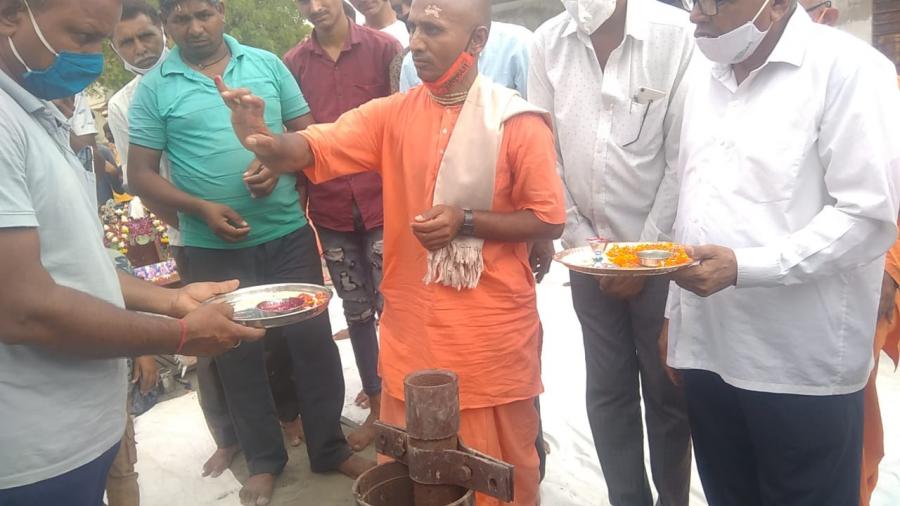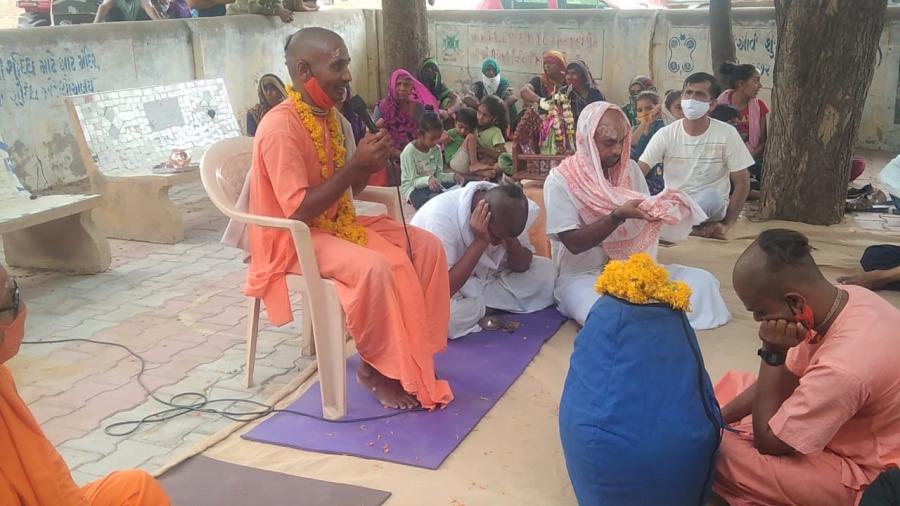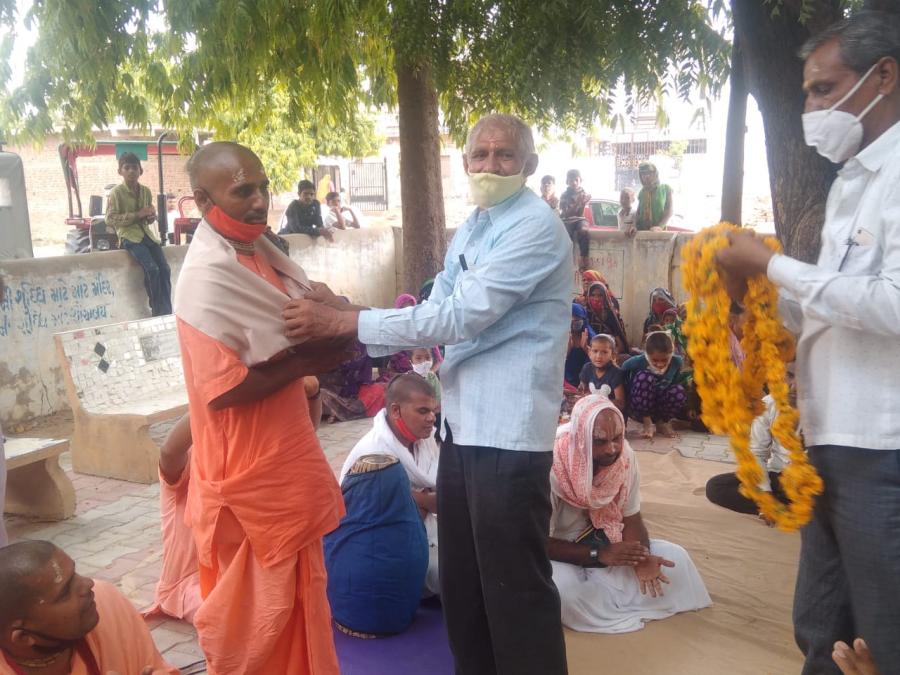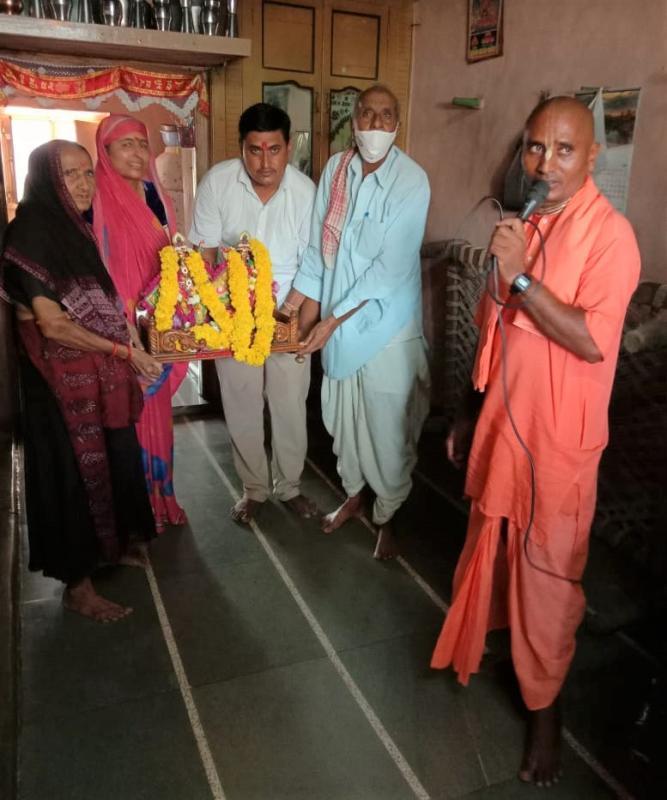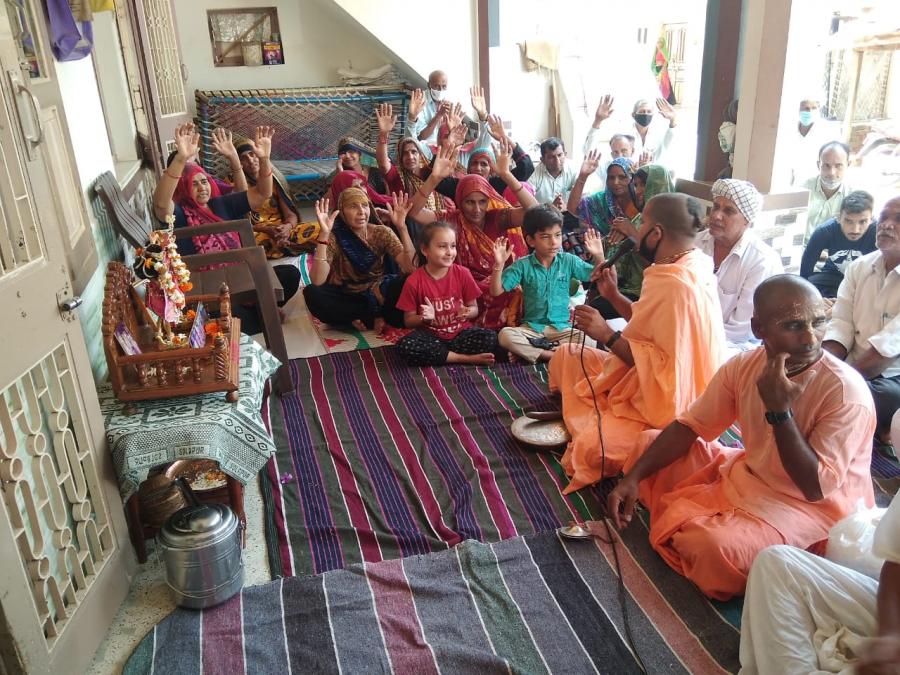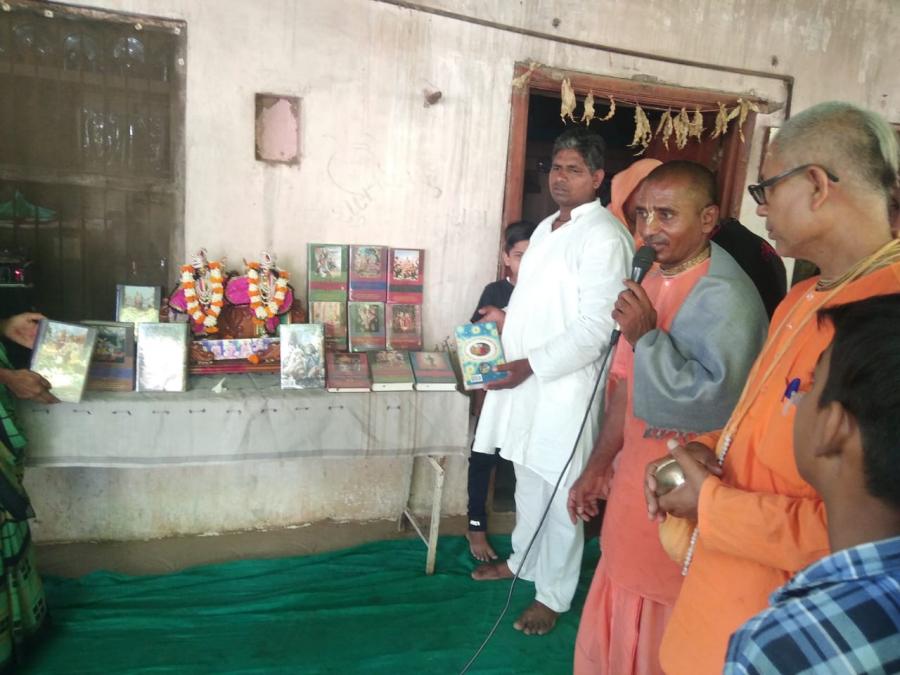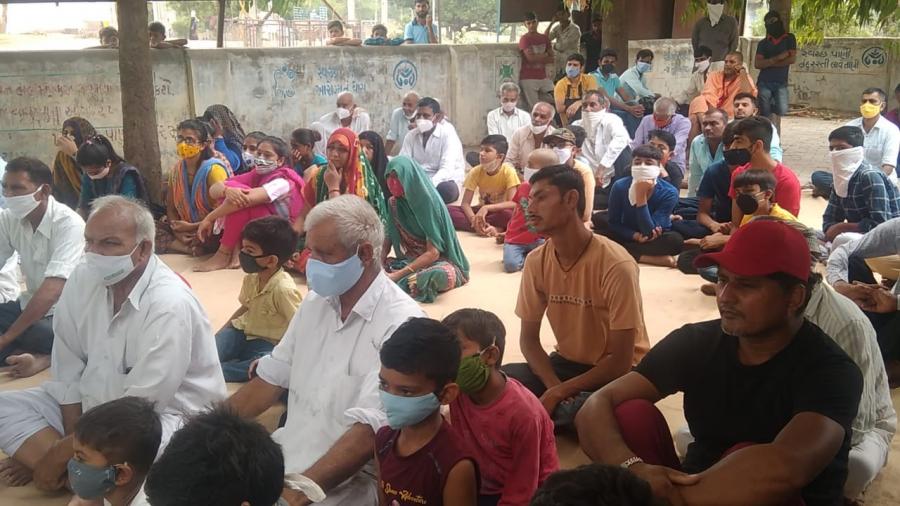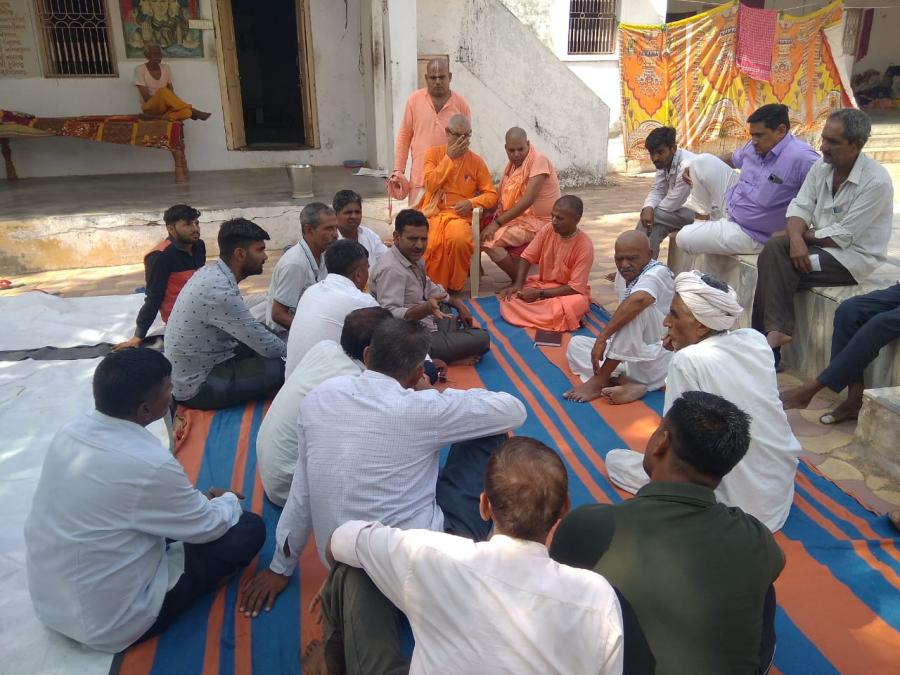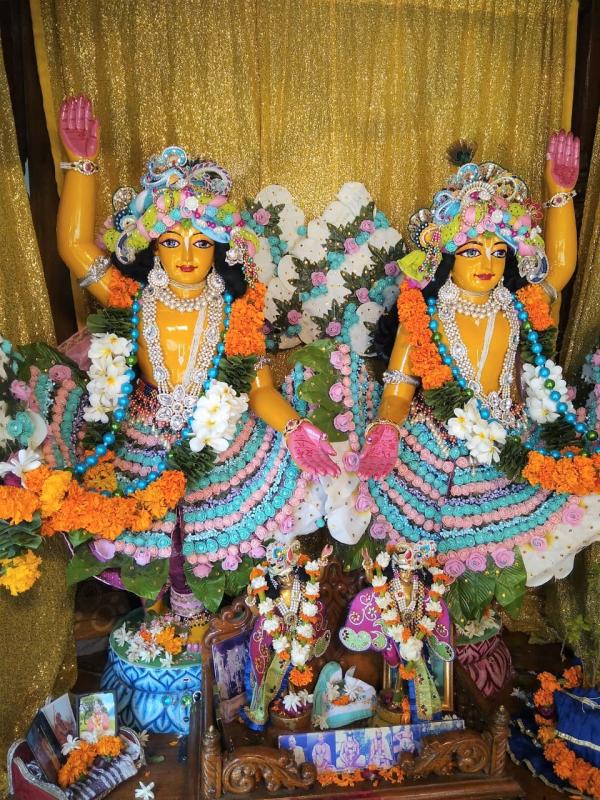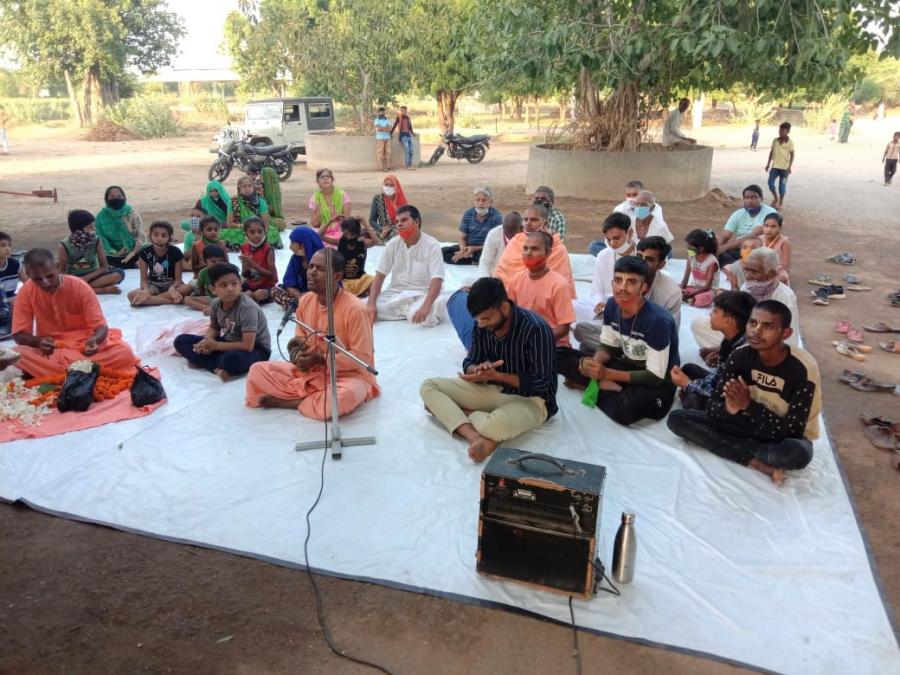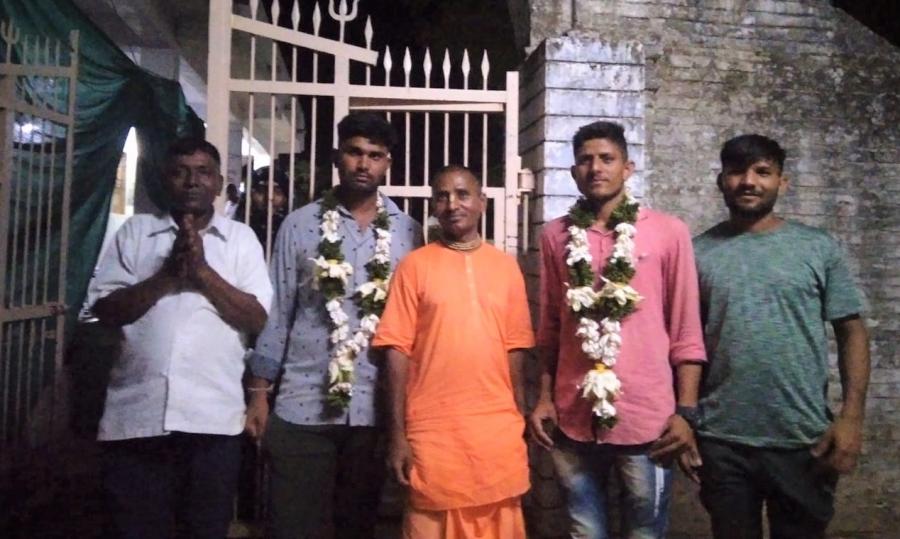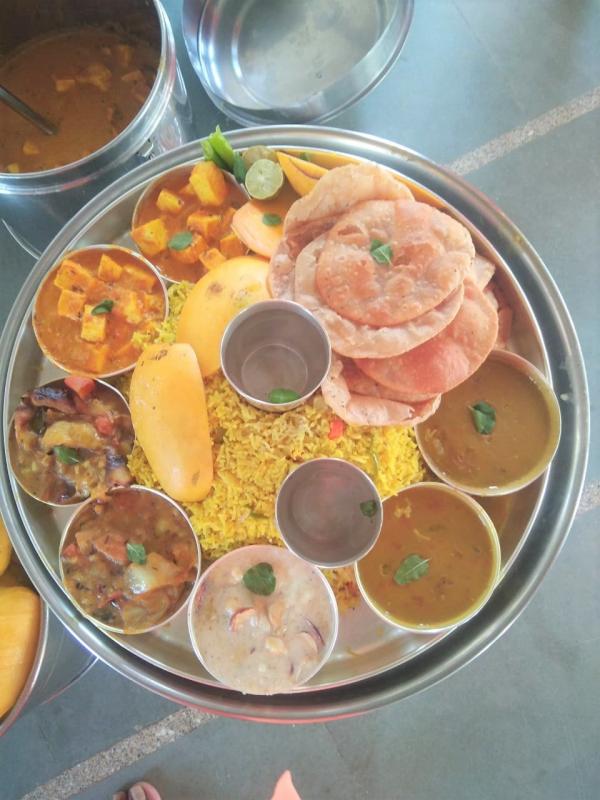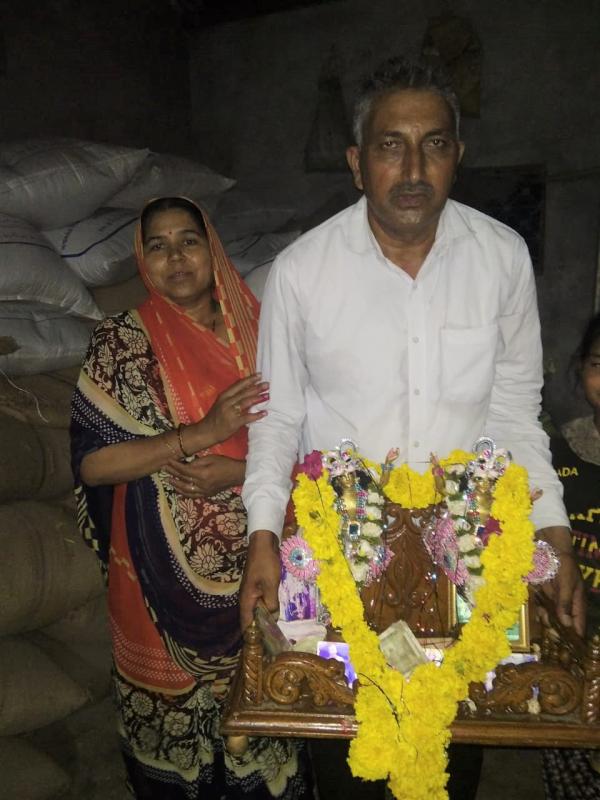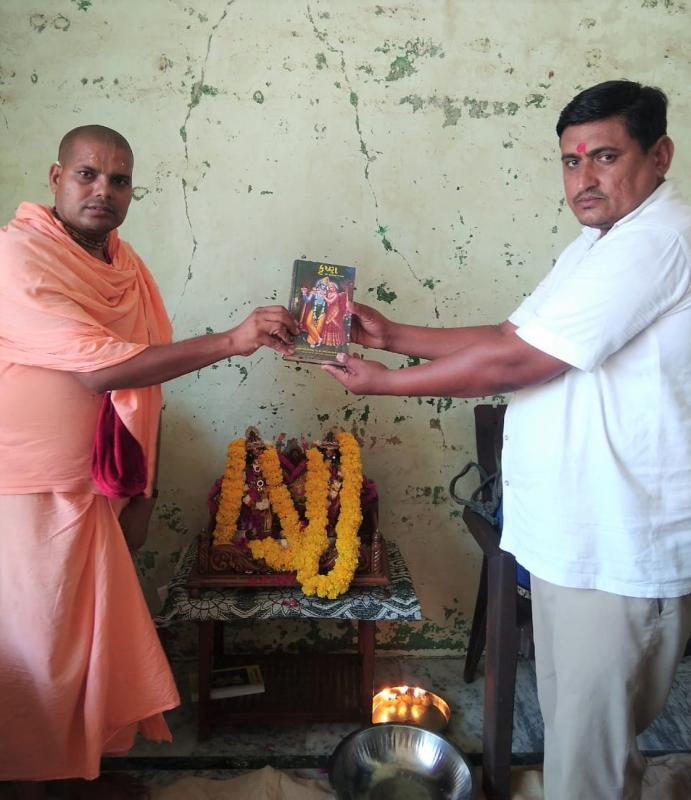By Acarya dasa, All-India Padayatra leader
During the recent second coronavirus lockdown we stayed at the temple of a five-headed Lord Shiva deity about 5km from the Gujarati village of Bharkawada. A devotee named Ananda, who is connected to ISKCON youth forum Vidyanagar, desired that padayatra should stop in his village but the sarpanch refused, and when we approached Bharkawada initially the authorities there were also reluctant but eventually agreed to let us stay. Sri Sri Nitai-Gaurasundar and the AIP thus became guests of the Panchmukhi mahadev temple for almost six weeks.
Alongside the temple is a crematorium, so rarely would anyone visit the temple. But due to the mercy of Lord Shiva, a great Vaishnava, following Their Lordships’ arrival people have come every evening for the Gaura arati programme and every morning for mangala arati and to take darshan of Lord Shiva and Sri Sri Nitai-Gaurasundar. The deity of Lord Shiva has specific significance. When in the past a local farmer was ploughing the land, the deity appeared from the earth. People from several surrounding villages came to take the deity to their respective village in bullock carts, but only the Bharkawada villagers could convey Lord Shiva: he got into their bullock cart only because the other villagers couldn’t lift him. The reason may also have been because in the future Nitai-Gaurasundar would come to give darshan to Their beloved devotee, Lord Shiva.
This Shiva deity exhibits the mood of a pure Vaishnava and historically the annual Mahashivratri festival in Bharkawada is held on Sri Krishna Janmastami. Previously the deity was worshipped by a saintly elderly person, but some villagers alleged he had secret affairs with women and had him removed. He then started worshipping in another temple in the village but with hardly anyone to care for him or provide him with food and shelter, some months later he left his body. The few who did support him were blessed and their family members graced with financial security, but after his death his opponents tied his legs, pulled his body like an animal through the streets and threw him in a ditch. Because Lord Shiva could not tolerate this, calamities befell the village with many cows, buffalos and small children dying. Lord Shiva then appeared in the dream of another devotee and told him to arrange a procession for this saintly person, construct his samadhi, feed other saintly villagers and all disturbances would cease.
Early in our stay at the temple a local follower of Hindu nationalists Rashtriya Swayansevak Sanga (RSS), who previously had welcomed Their Lordships, asked us to leave because too many people had been gathering. I told him we were not inviting them, that they were coming of their own accord and the temple had neither a compound wall nor a security guard to prevent people from gathering. However, the man informed the police. One day more than 100 people gathered for the evening programme. When the police arrived in the middle of arati the villagers fled. We continued our programme and after Nrsingha arati a police officer said, “Don’t gather this much of a crowd. This is a pandemic situation.” We assured the police that we would not allow people to gather, but as soon as everyone heard the sound of mrdanga and kartal they returned to the evening programmes.
The police came again and this time escorted me to the police station. I took my bead-bag and a Bhagavad-gita with me. At the police station an officer asked me, “Where are you from?” I said, “We have been walking from Dwaraka.” He said, “Why are you gathering people?” I replied, “We are not inviting them; they want to come and because they do, they are becoming saintly. Many of them have stopped drinking liquor and quarrelling with each other.” He said, “Why are you carrying a Bhagavad-gita?” I said, “I brought it to give to you.” He accepted the Bhagavad-gita. Just then three vehicles full of villagers arrived. One of them said to the officer, “This is a saintly person. Please release him.” The officer turned to me and said, “Normally nobody comes for releasing anyone, but for you three vehicles came filled with people. It’s beyond my imagination!”
Just as I was leaving, he honoured me with a shawl, a coconut and a 500-rupee donation. He said, “What should I do? I am always in tension.” I said, “You can practise devotion to Lord Krishna, chant the holy name and read the Bhagavad-gita.” He later sent his family members for darshan of Sri Sri Nitai-Gaurasundar.
The whole village has now turned to Krishna consciousness. On ekadashi we explained the significance of the day and about fifty villagers observed it by fasting and chanting. On the next ekadashi we did more than ten house programmes and the householders also started chanting. By now many people were attending mangala arati and some had stopped eating onion and drinking tea. Previously no-one knew of ISKCON here and this was their enthusiastic response. We had taken Nitai-Gaurasundar to one villager’s home and performed sankirtan, so other villagers started inviting us to their homes together with people from the surrounding area. In this way we did up to thirty house programmes, each one attended by more than 200 people, where the padayatris and Their Lordships were welcomed with garlands. Many villagers also purchased Srila Prabhupada’s books. The former sarpanch of Bharkawada, who is a devotee of Lord Krishna, then invited us to his house. He made arrangements for welcoming their Lordships just like a big bhagavat saptah and we invited Krishnamedha dasa from Palanpur to give katha. The former sarpanch now desires to build a small Krishna temple in the village.
We were supposed to leave on June 4, but the villagers insisted we stay for a few more days. I told them that even if they had requested us to stay for one more week, we were determined to move on. “But the Lord fulfilled your desire,” I said, “and it might be the desire of Lord Siva also that we should stay a little longer.” I had not realised that a special ekadashi celebration was being planned. The villagers had decided they would not cook anything in their homes on the coming ekadashi but would fast and then everyone would have ekadashi prasad with devotees. They were also planning a pandal programme, decorating a cart, doing sankirtan in the village, and distributing prasad. Hence their request for us to delay our departure. I was much satisfied and inspired throughout our extended stay at Bharkawada. Daily I would rise early and chant ten to sixteen rounds before mangala arati while praying to the Lord Shiva deity.
Padayatra India moved ahead on June 7. On behalf of padayatra we gifted a large laminated photograph of Sri Sri Nitai-Gaurasundar and some of Srila Prabhupada’s books to those who had served Their Lordships.

